#ChemEngCatchUp Episode 5 – Adil Farooq
Meet the Department 23rd March 2016
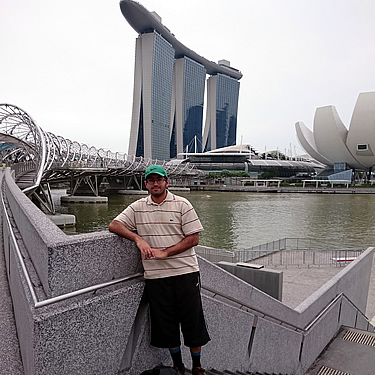
Can you believe that we’re already 5 episodes into #ChemEngCatchUp? I know I can’t. This month, we make a bit of a departure from the norm. For the first time, my interview is not with one of the School’s researchers; instead, we’re with recent alum Adil Farooq.
I was introduced to Adil by Dr James Winterburn, the star of the very first episode of this series. James informed me that Adil had been a fantastic student, and one that went on to do some very exciting things when he graduated. He wasn’t wrong. Find out more below:
Hi Adil. Can you start by telling us what you studied here at the School? And what was your favourite part of the course?
I studied a BEng in Chemical Engineering and graduated in 2011 and then went onto the study the Advanced Chemical Engineering MSc, finishing in 2012. The best parts of the course for me were the more interactive, practical, and group-based subjects.
One example was the design project. That was one that I really enjoyed. And the lab project. And the Enquiry Based Learning (EBL) sessions, where you got to interact with different people and share ideas.
How did the School help you get through your studies?
I think the School has excellent teaching within Chemical Engineering. There’s a lot of professors and a lot of brilliant, brilliant teachers. Also, I really thought the EBL sessions helped a lot – where the demonstrators, such as PhD students, were on hand to help out with any questions we had as part of our studies.
The lecturers, most of them, operated an open door policy. So you could always go in and ask them questions and it was always fairly informal.
So yeah – all in all, you had a great deal of help from a variety of different people.
And what was your best memory from your time here in Manchester?
The best memory for me has to be meeting all the different people from different backgrounds and different cultures. Chemical Engineering is a very diverse course so you get people from all over the world – different languages, different cultures – a lot of whom I’m still in touch with right now. And I made some really great friends who are now some of the best friends that I’ve ever had.
And on the other hand I can say that playing cricket outside The Mill was a plus point. That was one of my best memories!
Do you have any tips for anyone planning to do the same courses in the future?
Yeah – I’d say make sure you focus on your core chemical engineering principles. So particularly the first year. So you’ve got you fluid flow and your heat transfer courses. And although they may seem a bit dull compared to other things you’re doing in first year, as they did to me, as you go through the course and then if you go in to industry you understand how important those fundamentals are. And how you can apply them within different situations within industry.
Great tips, Adil. Thank you. So, can you tell us a bit about what you’re doing now?
Yep, sure. So, after graduating in 2012 I’ve been working with Costain based in Wythenshawe. So I’ve been working within their natural resources division, primarily within gas processing. So I’m a Process Design Engineer, carrying out, mainly, design work within the office.
So I’ve done everything from short concept studies to eight-week studies in which you have a blank sheet of paper, come up with a new process, and give the client a rough cost. Then you move on to the more detailed work with studies which last three to six months. So you give the client more confidence, do a bit more work, a bit more detail.
I’ve also done detailed design and commissioning – so I’ve been out to Thames Water in London and travelled around all their sites in the South of England helping them to commission some new bits of kit they’re installing as part of their new amp period.
I’ve worked within gas processing in particular, so that’s been my main focus. So for two years I’ve worked in many different technologies – LPG extraction, LNG nitrogen rejection, all mainly within cryogenic gas processing.
I’ve also had the privilege to co-author a technical paper as part of my time at Costain. And I had the chance to go and present that to a European conference in Florence!
That’s extremely impressive stuff, Adil. Nice work. You’ve crammed a lot into your time since graduating. So how can the work you’re doing now benefit the general public?
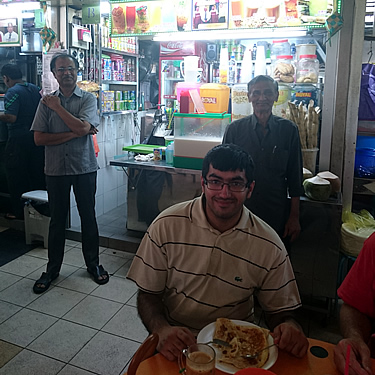
I think there are two aspects – one is the gas processing and the second is the water. So for gas processing, the work we do helps to ensure a clean and reliable energy supply for the UK. If we focus mainly on gas processing, gas is the cleanest of the fossil fuels. So we develop technologies primarily based on gas processing and then that gas is used for domestic purposes within the UK, and anywhere else in the world where we’ve worked.
The second aspect, relating to water, involves making sure that the areas we’ve worked in have a clean supply of water. Obviously that’s essential; everyone needs drinking water. And I realised during my time at Thames Water how much work goes into the treatment of water – from sewage all the way through to the tap. It’s quite an intensive process.
And what do you enjoy most about your current role?
I’d say there are two things. One is the variety of work – from all these concept studies to detailed design to being on site and commissioning stuff. So I’ve been through the whole project life cycle, as it were.
And secondly, I’ve got to say, is the travelling. I’ve managed to get out to Pakistan to collect some site data from a plant Costain built out there back in 2000. As part of some modification work we were doing I managed to go out there – sort of in the middle of nowhere surrounded by desert and mountains, so that was quite an experience.
I’ve also managed to get out to Singapore for a week to carry out a study as part of a project I was working on. Luckily, I managed to swing a two day holiday at the end of that so I got to do some sightseeing in Singapore. And then the technical paper I presented in Florence; again I managed to get a day attached onto the end of that for a bit of a holiday.
So I think yeah, travelling is the primary one for me.
Sounds amazing – I’m pretty jealous. Last question, then. Can you tell us how being here in Manchester helped you get to where you are today?
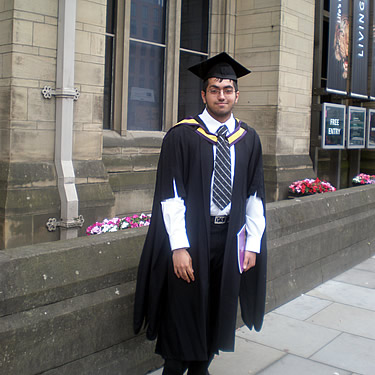
Yeah – I think Manchester offers excellent teaching facilities and has one of the top chemical engineering courses in the UK. Also, it’s favourable with employers. So a lot of employers target Manchester as one of their universities. Costain, I know in particular, comes in to Manchester and targets our students as employees because it’s a local company with local employers.
And the Master’s degree, offered with industrial experience, really puts you above a lot of people who haven’t done that aspect of the course. A lot of employers look for students who have done industrial experience as part of their degree.
Brilliant – thank you, Adil. What a great insight into the life of one of our graduates. It’s exciting to hear how quickly your career can take off after graduating here, and good to know that top companies such as Costain actually target our students! Anyone else feeling suitably inspired?
We’ll be back in roughly a month’s time, taking another slight departure to interview PDRA Ximena Schmidt. See you then.
AlumniChemical EngineeringPostgraduateProcess DesignTravellingUndergraduate

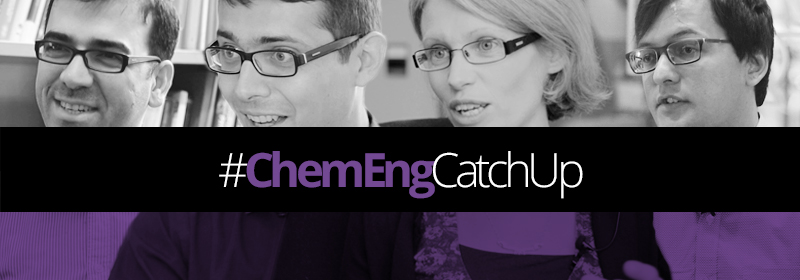
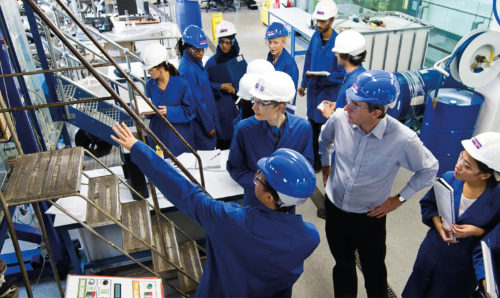
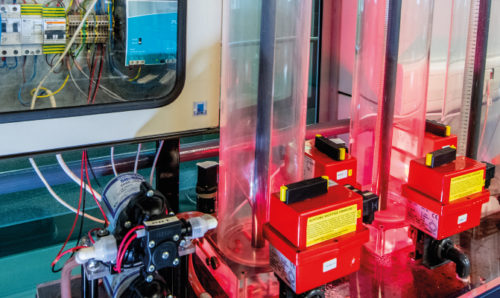
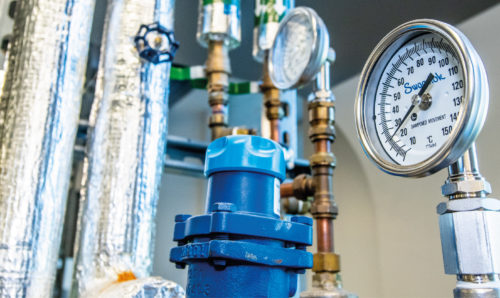
Leave a Reply